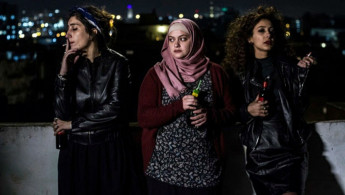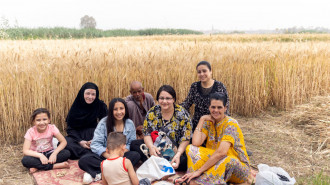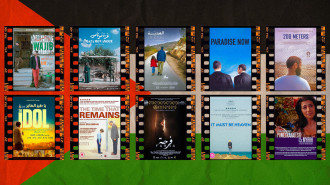Palestinian film about party-loving women sparks orgy of criticism
A film that depicts party-loving Israeli-Palestinian women living alone in the Israeli capital of Tel Aviv has prompted calls for the movie to be banned from cinemas.
In Between (Bar Bahar in Arabic) has dared to tackle the sensitive subject of Palestinian women engaging in premarital sex, homosexuality and drugs, sparking an angry response from an Arab municipality.
The city of Umm al-Fahm released a statement on Sunday, calling for a countrywide ban on the "vulgar" film about a conservative Muslim woman moving in with two liberal flatmates in Tel Aviv.
"We confirm that we totally reject and strongly condemn the so-called film 'In Between' because of its direct insults towards Umm al-Fahm, its people in particular, and Palestinian society in Israel in general," the statement read.
It also urged Arabs "from all classes, parties and movements" to boycott the film, however, asking that people criticise it "politely and respectfully".
The Centre for Developing, Improving and Initiating Legislation in Israel also put out a statement addressed to the country's film censors and ministry of culture demanding the film stop being shown in cinemas.
One resident of the city, where Israel's Islamic Movement is based, claimed the reason for the backlash was a scene depicting the rape of one of the main characters by her Islamist fiancé, who comes from Umm al-Fahm.
In the Arab town of Kafar Qasem, a poster for the film was torn down and ripped to shreds.
The film was first shown at festivals in September last year and has won several awards, including honours at the 2016 Haifa International Film Festival.
It is about the trials and tribulations of three female friends living "in between" tradition and modernity.
Palestinian-Israelis make up approximately 20 percent of Israel's population. Israeli authorities have long been accused of discriminating against its Arab population.
This film has not been the only one shaking things up the Arab world, an Egyptian film this angered Muslim clerics for its depiction of a corrupt religious establishment working with government security agencies.



